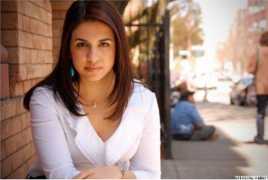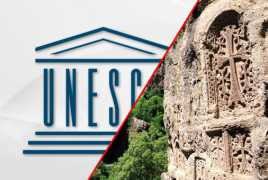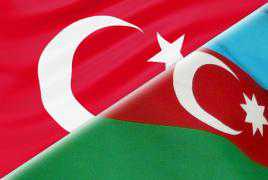 PanARMENIAN.Net – In the evening of June 28, Bloomberg news agency photojournalist Diana Markosian was deported to Istanbul from Baku, contact.az reported, citing Turan.
PanARMENIAN.Net – In the evening of June 28, Bloomberg news agency photojournalist Diana Markosian was deported to Istanbul from Baku, contact.az reported, citing Turan.
According to RFE/RL Azeri service, on June 28, Diana Markosian was detained at Baku airport.
Emin Huseynov, director of Institute for Reporters’ Freedom and Safety, who’s been in contact with Markosyan, stated that Markosyan came to Baku in the early hours of 28 June, but was not permitted to go out of the airport. “Markosian is dual citizen of U.S. and Russia. She came to Baku with her Russian passport. Her documents are all in order.”
Elkhan Polukhov, head of the press office for the Ministry of Foreign Affairs, stated that Markosian did not have accreditation. “She sent her documents, presented herself. Bloomberg directors as well as Diana herself were told that her visit here would not be possible, the accreditation cannot go through – because problems may arise in providing her safety here. It was suggested that she be replaced by another journalist.”
Photos taken by Markosian have been published in newspapers such as the New York Times, Boston Globe, Wall Street Journal and The Washington Post.
On 18 April 2011 Swedish journalists Charlie Laprevote, My Rohwedder Street and Charlotta Wijkstrom were detained and deported from Baku, having come there to film a documentary about freedom of expression in Azerbaijan.
via Bloomberg photojournalist deported from Baku because of her Armenian origin – PanARMENIAN.Net.





